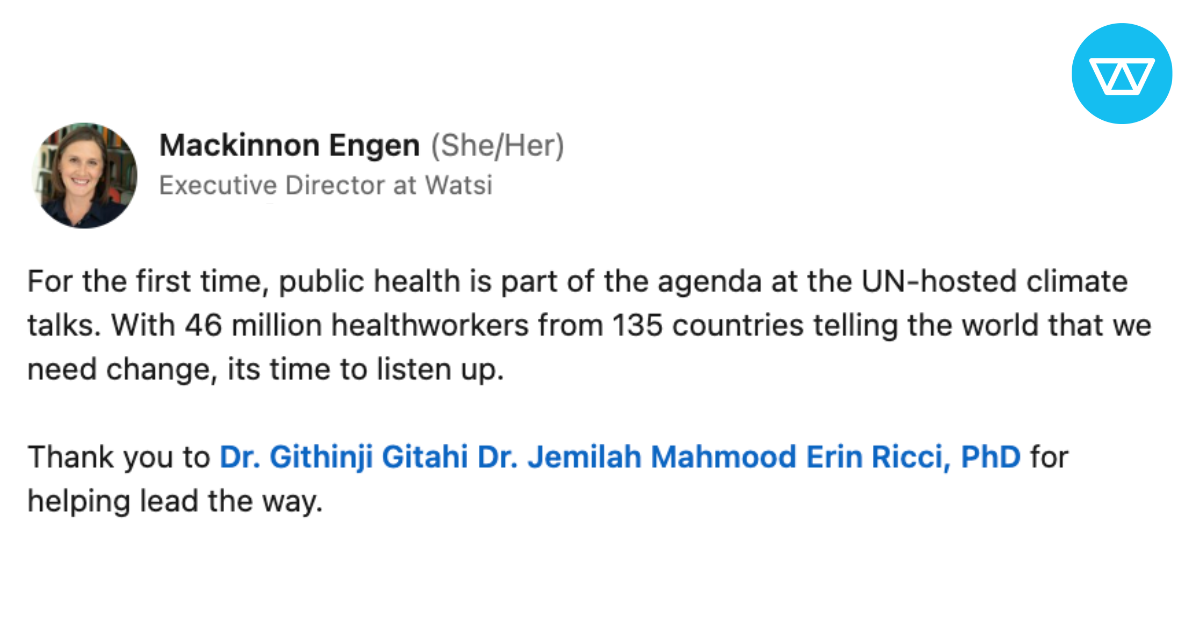In the heart of Mai Mahiu, Kenya, Jane's life was forever altered by a devastating landslide that claimed the lives of her husband and one of her sons. Her daughter remains missing, and Jane sustained a fractured collarbone. A local church provided her and her surviving son with temporary refuge—a semblance of solace—but Jane still faced an urgent need for medical care and a future clouded by uncertainty, having always relied on her husband’s earnings to support their family.

Across the border in Ethiopia, young Olira confronts a different but similarly harrowing reality. Prolonged droughts have ravaged his family’s farm, leading to severe food shortages. Each day, Olira’s father rises before dawn, searching for work while often skipping meals to save money for the family’s dinner. Olira—whose name means “from above”—needs surgery to heal his birth condition, but the cost of treatment is increasingly out of reach for his family.

The Immediate and Global Impact of Climate Change
Jane and Olira’s stories are not isolated incidents. They represent the many lives already being disrupted by climate-related crises. These stories highlight an urgent truth: climate change is no longer a distant future threat. It is here now, directly impacting the health and well-being of communities around the world. The World Health Organization (WHO) projects that between 2030 and 2050, climate change will cause an estimated 250,000 additional deaths annually due to malnutrition, malaria, diarrhea, and heat stress. Extreme weather events, rising sea levels, and shifting disease patterns are exacerbating vulnerabilities, particularly in lower-income regions, where communities are grappling with the direct repercussions of climate instability.
Compounding Vulnerabilities in Africa
In Africa, the situation is compounded by high dependency on agriculture, limited financial resources and safety nets, and underdeveloped infrastructure. Just as Jane and Olira’s families faced, East Africa is experiencing a worrying increase in the frequency and intensity of extreme weather events—droughts, floods, and landslides—which devastate local economies and create immediate health crises. Injuries and fatalities result not only from these disasters but also from the ensuing disruptions in access to essential resources, including healthcare. Food insecurity adds another layer of complications to this issue. The Food and Agriculture Organization (FAO) reported that in 2022, 342 million people in Africa were experiencing severe food insecurity.
The Escalating Crisis of Climate-Induced Displacement
Displacement resulting from climate-related disasters adds to the complexity of concerns. The UN Refugee Agency (UNHCR) warns that the climate crisis is exacerbating displacement and placing additional burdens on those who have already had to flee their homes. Often referred to as climate refugees, these individuals face the dual hardships of political instability and the daunting task of rebuilding livelihoods after leaving once-fertile lands. As climate variability continues to intensify, so do the specters of malnutrition and related health complications. Living in overcrowded and resource-scarce environments, they endure dire health conditions due to inadequate shelter, poor sanitation, and limited access to healthcare.
A Global Response: Building Climate-Resilient Healthcare
In response to these urgent health implications, global leaders have begun to take action. At the 2024 World Health Assembly (WHA 77), a landmark resolution was adopted to address climate change as a significant threat to global public health, focusing on building climate-resilient and sustainable healthcare systems. Notably, at COP28, over $1 billion was committed to climate and health initiatives, yet substantial funding gaps remain.

Watsi’s Commitment: Bridging the Gap
At Watsi, we are grounded in the belief that everyone deserves quality healthcare. Through the generosity of our supporters, we’re providing immediate help to people like Jane and Olira - those grappling with the cumulative effects of climate-related crises - by covering the costs of their much-needed surgical care. Our commitment to climate justice is pivotal as those most affected by climate change often contribute the least to its causes. It is imperative that we urgently address the healthcare needs within vulnerable communities and fortify health systems as we move toward building a healthier world for all.
One solution we are building is to launch an expanded emergency surgery program aimed at providing urgent and life-saving interventions for those in critical need, including victims of disasters. This initiative aims to ensure that individuals like Jane can access immediate care, exactly when they need it the most.
Together, We Can Build a Healthier, Climate-Resilient Future
Climate change and health are inextricably linked, with severe impacts for the most vulnerable regions, communities, and people. We invite you to join us in this vital mission of providing medical care to individuals affected by such crises. With as little as $5 every month, your help can make a profound and urgent difference. Together, we can build a healthier, more resilient future for all.
Jane Ngige-Muturi
Program Advisor @Watsi